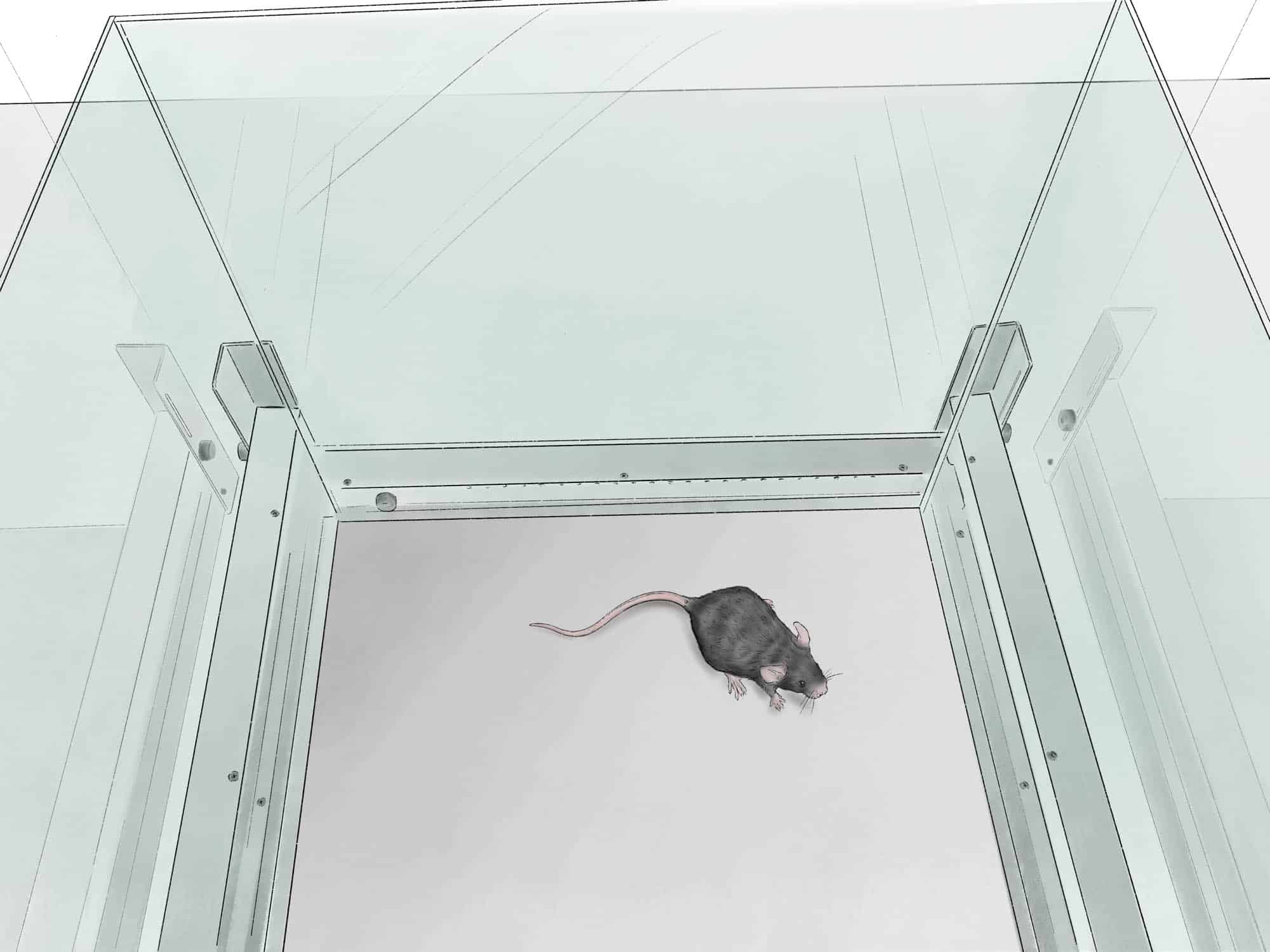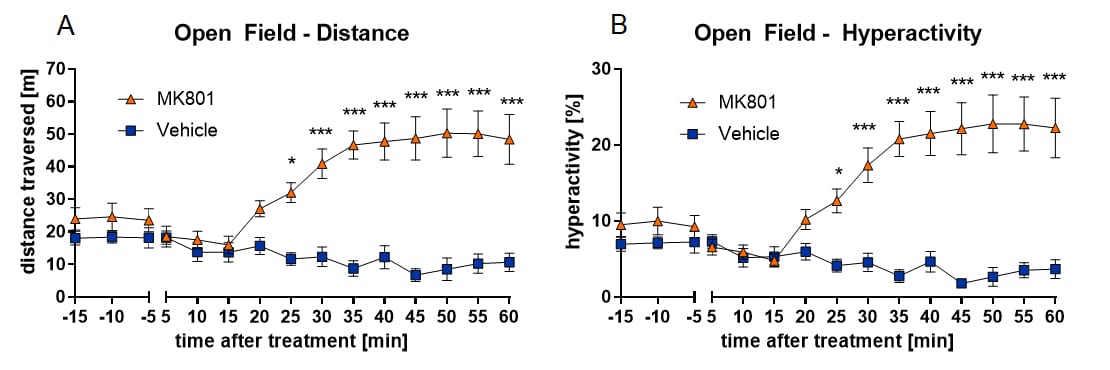
The Open Field Test is used to measure locomotion, hyperactivity, and some aspects of anxiety-related behavior in rodent models.
A plexiglas Open Field arena (TSE-System®) equipped with infrared photo beams is used. The system automatically detects horizontal and vertical movements using a fully automated tracking system that measures locomotion, hyperactivity and rearing behavior, the latter defined as standing on the hind limbs. The test duration depends on the experimental question and research needs, and usually lasts between 5 minutes and 1 hour. Thigmotaxis, measured by the relative time that the mice spent in the periphery versus in the center of the arena, serves as an index of anxiety-related behavior. Observed differences in locomotion and hyperactivity should be further evaluated using motor tests that are specifically designed to test motor function to exclude motor deficits as a confounding factor. Anxiety-related behavior should be validated by specific tests for anxiety, like the elevated plus maze test.
The open field test is commonly used to test general locomotion, hyperactivity, and anxiety-related behavior in animal models of different diseases, such as Alzheimer’s disease, Parkinson’s disease, Amyotrophic Lateral Sclerosis, Huntington’s disease, Niemann-Pick disease, Gaucher disease, Pompe disease, Mucopolysaccharidoses, Multiple Sclerosis and many more rare diseases. In addition, the open field test is employed to evaluate changes in locomotor behavior as a relevant parameter in neurodevelopmental and mental disorders, such as autism-spectrum disorders and schizophrenia. Finally, the open field test can be utilized to screen drugs of abuse that induce psychomotor changes.

Open field behavior of MK-801 treated C57Bl/6 mice. A: Distance traversed of MK801-treated animals compared to sham-treated controls. MK801-treated mice show increased locomotion starting 20 minutes after treatment. B: Hyperactivity level of MK801-treated animals compared to sham-treated controls. MK801-treated mice show increased hyperactivity levels starting 20 minutes after treatment. n = 10 per group; mean ± SEM. Two-way ANOVA with Bonferroni’s post hoc test. *p<0.05; ***p<0.001.
